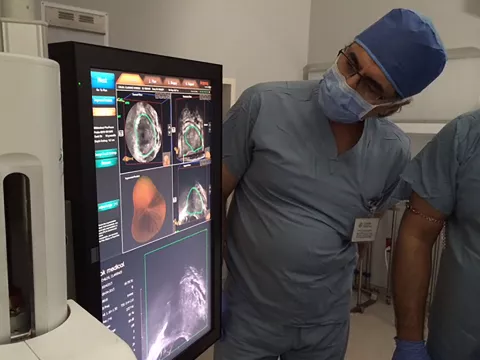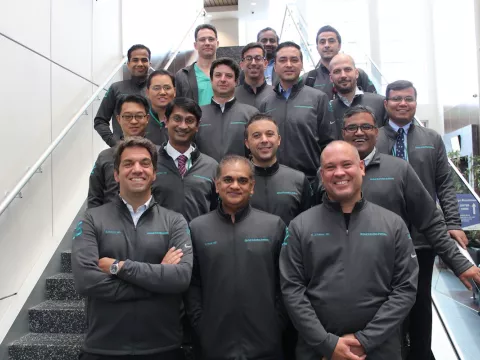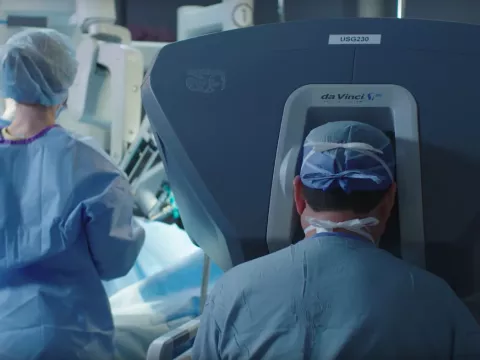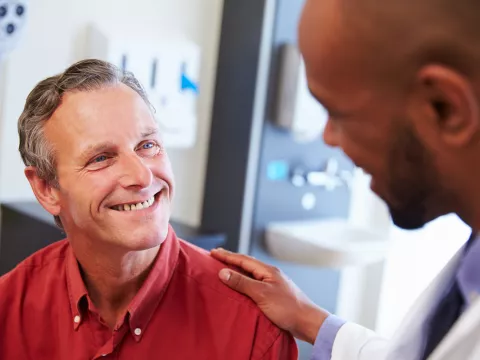
Robotic Prostatectomy: Treatment and Options
Depending on several factors, prostate cancer treatment options can range from “watchful waiting” (monitoring of the tumor) to radical prostatectomy (removal of the prostate gland).

Depending on several factors, prostate cancer treatment options can range from “watchful waiting” (monitoring of the tumor) to radical prostatectomy (removal of the prostate gland).

If you have a symptom or test result that suggests cancer, your doctor must find out whether it is due to cancer or to some other cause.

Thank you for choosing the AdventHealth Urologic Oncology (formerly Center for Urologic Cancer) for your health care needs. For your convenience, we made our new patients forms available below.

The Global Robotics Institute is proud to offer the Blueprint for Men’s Health prostate cancer survivorship program. The program is a multidisciplinary guide to help patients through post-surgery...

Revolutionary treatments and innovative care continue to advance the quality of surgical treatments available.

Located on the AdventHealth Celebration Health campus in a leading-edge environment, the 12- and 24-month fellowships provide excellent educational experiences.

The Global Robotics Institute fellowship program emphasizes a high-level focus on both surgery and research. The goal of our program is to produce a robotically-trained surgeon who is capable of a...

According to the National Cancer Institute, prostate cancer is the second-most common type of cancer among men in the United States.

When cancer is found, it’s 80% likely to be in the cells that line the inside of the bladder and non-invasive.

The AdventHealth Global Robotics Institute works in close partnership with cancer and internal medicine experts to us determine the best treatment options for your bladder cancer.

The quality of each patient’s experience at the Global Robotics Institute is paramount, from the initial consultation to the outcomes you receive from your surgery.

Highly advanced technology has led to the development of a revolutionary new form of prostate surgery, the robotic prostatectomy.

A woman’s reproductive system, which consists of the uterus, vagina, ovaries, and fallopian tubes, can be affected by a wide array of benign (non-cancerous) conditions.